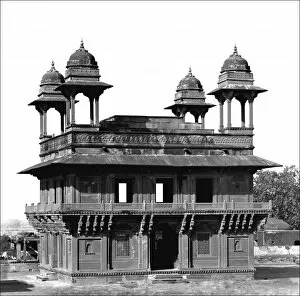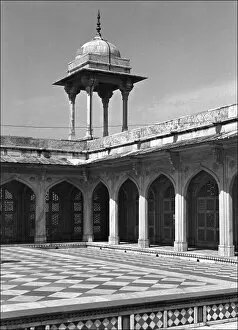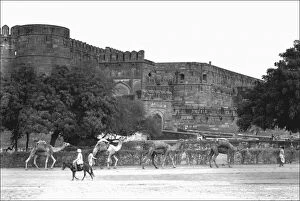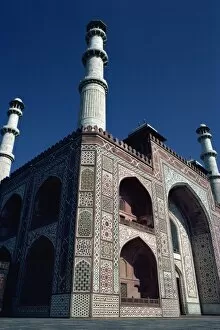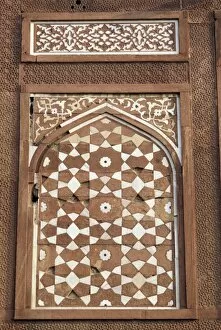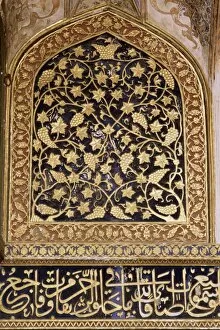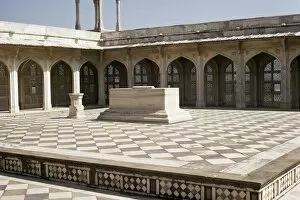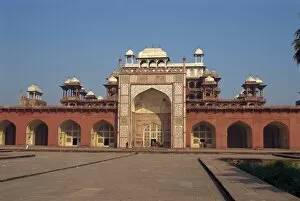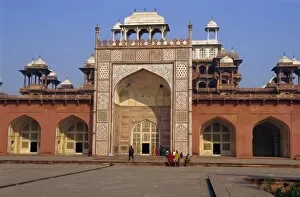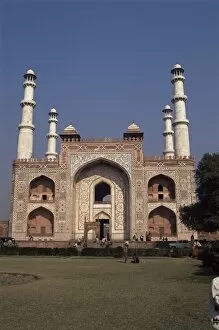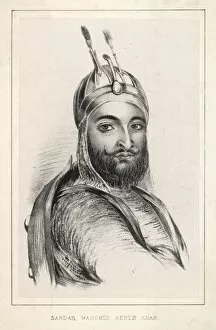Akbar Collection (page 5)
Akbar, the legendary Mughal emperor, was a towering figure in Indian history
For sale as Licensed Images
Choose your image, Select your licence and Download the media
Akbar, the legendary Mughal emperor, was a towering figure in Indian history. Born to Emperor Humayun and his wife Hamida Banu Begum, Akbar ascended to the throne at a tender age after his father's untimely demise. With Jahangir as his son and successor, their dynasty left an indelible mark on India. One of the most remarkable depictions can be found in the Shah Jahan Album folio. This exquisite artwork showcases his regal presence and grandeur that captivated all who beheld him. Another awe-inspiring sight is the marble pavilion nestled within Lahore's Fort Gardens. Its intricate design reflects Akbar's love for architectural splendor. In 1599, Mildenhall documented their encounters with Akbar during their travels through India. These accounts shed light on his benevolent rule and enlightened policies that fostered religious harmony among diverse communities. Akbar's reign also witnessed significant interactions with foreign powers like Surat in 1572 when he welcomed a delegation of Jesuits seeking diplomatic ties. His open-mindedness towards different cultures earned him respect from far corners of the world. The tomb of this great emperor stands tall in Sikandra Agra even today, showcasing its majestic beauty from early 1900s till now. It serves as a reminder of Akbar's legacy - a visionary leader whose ideas continue to inspire generations. Abu l-Fazl ibn Mubarak immortalized Akbar by presenting him with the illustrious "Akbarnama, " chronicling his life and achievements. This priceless gift symbolizes not only their close relationship but also highlights how deeply respected he was by scholars and intellectuals alike. Beyond ruling over vast territories, Akbar had a profound impact on education too; evident through institutions like the renowned Akbar Nautical Training School located in Heswall, Cheshire. These establishments aimed to shape young minds and instill values of discipline and knowledge.

